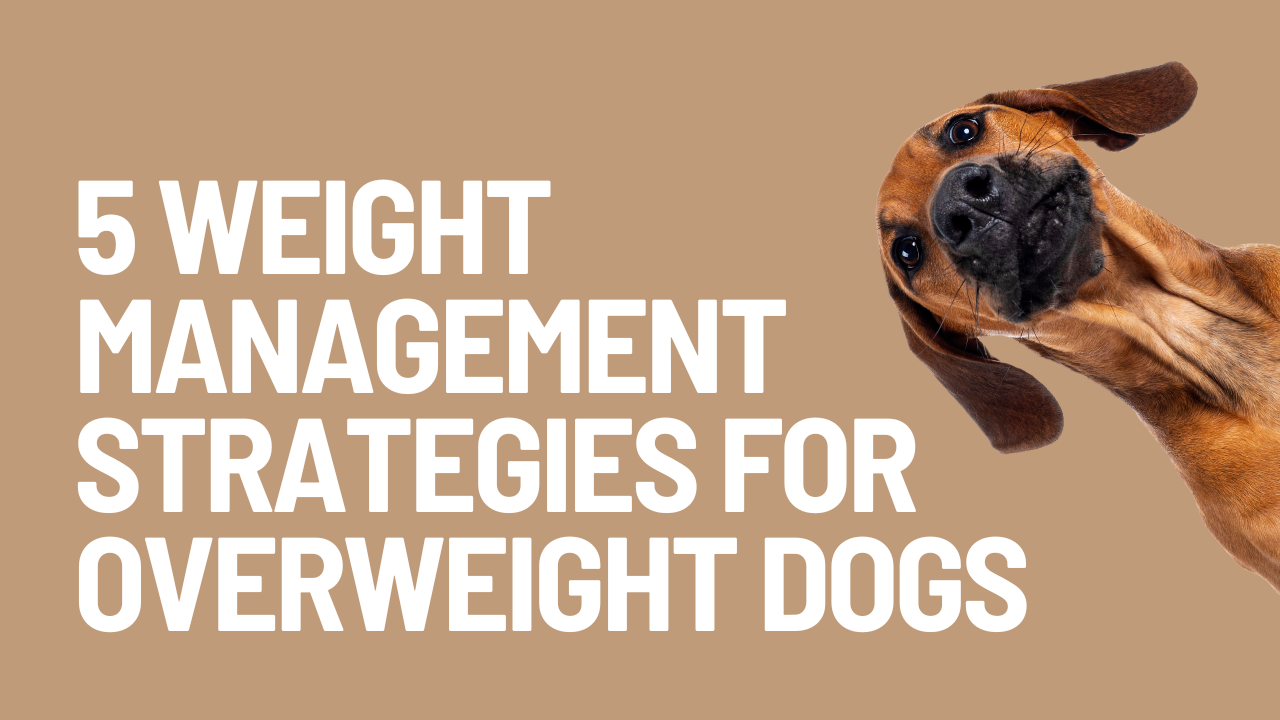Managing your dog’s weight is crucial for their overall health. An overweight dog is at higher risk for developing health issues like arthritis, diabetes, heart disease, and a reduced lifespan. Here are five effective strategies to help your dog lose weight in a healthy and sustainable way.
1. Adjust Their Diet
Choose High-Quality Food
The quality of the food you provide plays a significant role in managing your dog’s weight. Opt for foods specially formulated for overweight dogs. These foods are usually lower in calories but rich in essential nutrients. Ensure the food has a good proportion of lean proteins and fiber to help your dog feel full longer.
Control Portions
It’s easy to overfeed your dog without realising it. Use a measuring cup to portion your dog’s food for each meal accurately. Follow the manufacturer’s recommendations for portions based on your dog’s ideal weight, not their current weight.
2. Encourage Regular Exercise
Daily Walks
Daily walks are an excellent way to burn calories and boost your dog’s metabolism. Start with 20- to 30-minute walks twice a day and gradually increase the duration and intensity. Vary your routes to keep your dog engaged and motivated to move.
Active Play
Active play, such as fetch, frisbee, or chasing a toy, is great for helping your dog exercise while having fun. These activities can be incorporated into your daily routine and provide a fantastic way to bond with your dog while keeping them fit.
3. Limit Treats and Unhealthy Table Scraps
Reduce Treats
Treats can quickly add extra calories. Cut back on the number of treats you give your dog and opt for healthier alternatives like carrot or apple slices. You can also use a portion of your dog’s daily food as rewards during training sessions.
Avoid Unhealthy Table Scraps
Table scraps can be high in calories and fats, contributing to weight gain. Avoid giving your dog unhealthy table scraps and educate your family and guests on the importance of not feeding your dog.
4. Monitor and Adjust Regularly
Regular Weigh-Ins
Weigh your dog regularly to track their progress. A bi-weekly weigh-in is generally enough to see if the changes in diet and activity levels are having an impact. Record your dog’s weight in a notebook or a pet app to monitor trends over time.
Consult with a Veterinarian
Your vet can help you create a personalised weight management plan for your dog. They can also recommend regular health check-ups to ensure your dog is losing weight healthily and not suffering from any nutritional deficiencies.
5. Maintain Motivation
Set Realistic Goals
Set realistic and gradual weight loss goals for your dog. A weight loss of about 1 to 2% of their body weight per week is considered healthy. Realistic goals help you stay motivated and avoid frustration.
Positive Reinforcement
Use positive reinforcement to encourage healthy behaviours. Reward your dog with petting, praise, and occasionally healthy treats when they reach significant milestones in their weight loss journey.
Conclusion
Managing your dog’s weight is a long-term commitment that requires patience, consistency, and vigilance. By adjusting their diet, increasing their activity level, limiting treats, monitoring their progress, and maintaining motivation, you can help your dog achieve and maintain a healthy weight. Not only will your dog be happier and healthier, but you’ll also enjoy more active and joyful years together.

